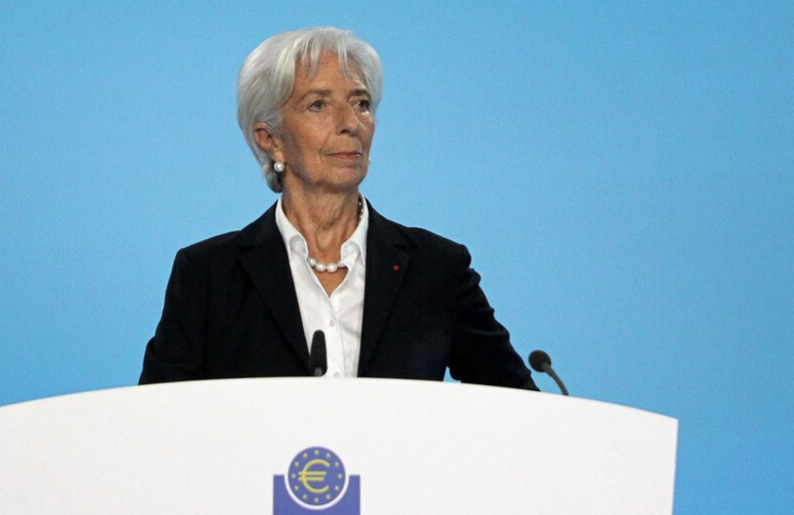Market experts predict a 0.5 percentage point hike on February 2. "Difficult to predict whether 'big steps' will continue."
By Alexander Lee

A photo from October 27 last year shows Christine Lagarde, President of the European Central Bank (ECB), holding a press conference on eurozone monetary policy. AFP Yonhap News.
While the US Federal Reserve has taken a so-called 'baby step' with a 0.25% point increase in the benchmark interest rate, attention is also turning to the actions of the European Central Bank (ECB).
The ECB, the central bank of the 20 countries in Europe that use the euro, will hold a monetary policy meeting on February 2 (local time) and is expected to announce its benchmark interest rate. Reuters reported that the most likely forecast is that the benchmark interest rate will be raised by 0.5 percentage points from its current level of 2.5%. The report also said that the ECB, which raised the rate by 0.5 percentage points on December 15 last year, is expected to continue a similar interest rate hike policy for the time being. The ECB has been consistently raising interest rates in response to global inflation triggered by the Ukraine war. The ECB has taken both 'big steps' (0.5 percentage point hikes) and 'giant steps' (0.75 percentage point hikes), and the current benchmark interest rate is at its highest level since 2008 at 2.5%.
The market is paying attention to whether the ECB will continue the same scale of rate hikes this year as last year. The fact that the US, which took four 'giant steps' last year, reduced its hike to 0.25 percentage points on the 1st could also have an impact. ECB President Christine Lagarde emphasized, 'We will steadily raise interest rates until inflation reaches 2%.' However, she is faced with a dilemma over the extent of the rate hike given this year's bleak economic outlook and international trends.
There are conflicting opinions among ECB insiders. Those with a hawkish perspective, favoring a high-interest rate policy, are explicitly calling for an additional 0.5 percentage point increase. On the other hand, doves are advocating for a smaller scale increase or at least minimal fluctuations.
In the Eurozone, the inflation rate reached a peak of 10.6% in October last year and has since fallen to 8.5% in January this year, but it remains at a high level, putting significant pressure on the European economy. In financial markets, there is speculation that the ECB will raise interest rates to around 3.5% by this summer, followed by a gradual decrease expected in the second half of the year as the economy contracts. However, economic analysts also advise against making premature judgments about future interest rate policies.
By Reporter Alexander Lee
alexanderlee_24@newsyn.co.kr

